Probably one of the most neglected parts of a modern vehicle is the catalytic converter. It is a critical part of the exhaust system and it keeps the air cleaner by reducing the number of harmful pollutants emitted by the tailpipe.
Perhaps the only time that you will pay attention to the catalytic converter is when it eventually fails. With this in mind, have you ever wondered how long does a catalytic converter last? The answer will surprise you.
Read more: The Best Aftermarket Catalytic Converters For Your Car.
Contents
How Long Does A Catalytic Converter Last Before It Needs Replacing?
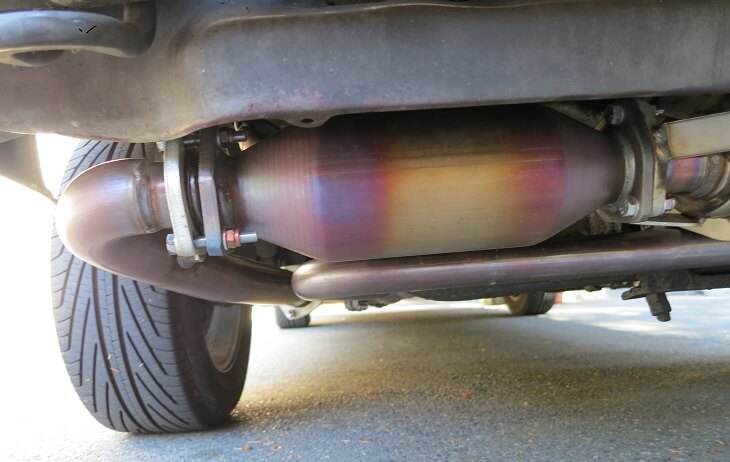
The catalytic converter is designed to last the life of your vehicle, provided that your engine is properly tuned at all times.
However, the average lifespan of the catalytic converter or the ‘cat’ is around 100, 000 miles or 160,000 kilometers. But with a properly tuned engine, coupled with the absence of rust and corrosion on the cat itself, there is no reason why the catalytic converter can last longer than that.
In fact, there are vehicles with more than 295,000 miles on the odometer and have no problems with the catalytic converter.
How Does The Catalytic Converter Work?
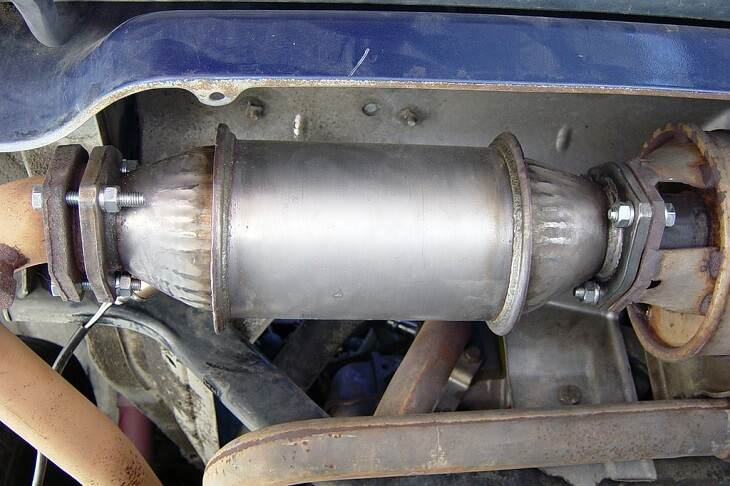
The converter works via chemical reactions. This device burns the harmful emissions and turns them into water vapor and oxygen, elements that are less harmful to animals, humans, and the environment.
Every time you start the engine and take your car for a spin, the engine burns the air and fuel mixture inside the engine and produces nitrogen gas, carbon dioxide, water vapor, hydrocarbons (VOC), carbon monoxide (CO) and nitrogen oxide (NO and NO2).
The main job of the catalytic converter is to convert poisonous gasses into less harmful elements. It converts carbon monoxide into carbon dioxide and hydrocarbons into water and carbon dioxide by a process known as oxidation. In this process, oxygen is fed inside the cat via an aspirator valve or air pump.
Modern vehicles are usually equipped with a three-way catalytic converter, which burns harmful pollutants and converts them to less harmful elements in three stages:
1. The first stage is called the reduction stage. The converter is equipped with Rhodium and Palladium, two elements responsible for reducing nitrogen oxide emissions.
2. The second stage is the oxidation stage. It is at this point that unburned carbon monoxide and harmful hydrocarbons are reduced by using a palladium and platinum catalyst to convert the harmful gasses into carbon dioxide and water.
3. The third and final stage is also called the control stage. In this process, the exhaust stream is monitored by one or more oxygen sensors. The sensors will send the information to the vehicle CPU so the computer can control the fuel injection and air ratio inside the combustion chamber.
If the CPU detects too little or too much oxygen in the exhaust, it can either increase or decrease the air/fuel ratio inside the motor. This will help the catalytic converter to effectively burn the harmful gasses in the exhaust.
What Can Cause The Catalytic Converter To Prematurely Fail?
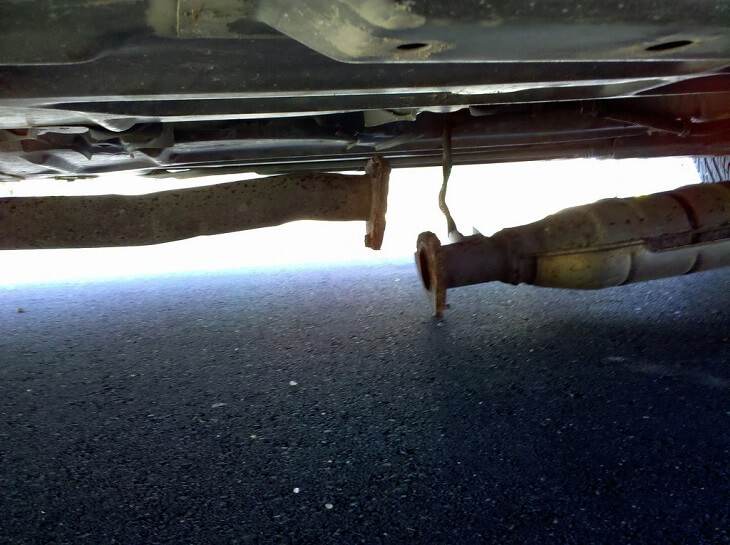
There are a lot of reasons that can contribute to the premature failure of the catalytic converter, and these are:
1. Rust and corrosion. Severe rust and corrosion on the body of the converter will eventually lead to failure. If you constantly drive in extreme environments (icy or salty conditions) or if you frequently drive off-road (water crossings, riverbeds, etc.) then you should have the converter checked at least once a year.
2. High levels of unburned fuel inside the converter. This can be caused by misfiring or faulty spark plugs, leaking exhaust valves, a worn head gasket, or a rich fuel mixture. All of these factors tend to overheat the converter itself, which will either melt the catalysts or cause a blockage.
3. Contamination. If contaminants such as oil (caused by worn valve seals and O-rings) and silicone (internal coolant leaks caused by a cracked block or leaking head gasket) find their way inside the converter, there will be an accumulation of phosphorus deposits which will increase the amount of hydrocarbons, carbon monoxide, and nitrous oxide in your exhaust. This will eventually damage or shorten the lifespan of the catalytic converter.
What Are The Symptoms Of A Bad Catalytic Converter?
If you notice these symptoms while driving your vehicle, then you should have the catalytic converter checked and diagnosed by a qualified mechanic:
- Mediocre fuel economy
- Engine misfire in the absence of any mechanical trouble
- Illuminated check engine light in the console
- The smell of rotten eggs emanating from the vehicle exhaust
What Can I Do To Prolong The Life Of The Catalytic Converter In My Car?
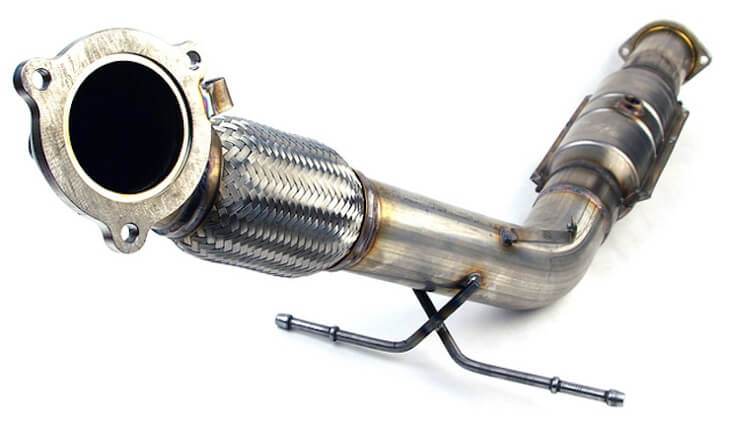
Lucky for you, there are a lot of things that you can do in order to prolong the life of the catalytic converter.
1. Drive carefully, especially if you have a lowered vehicle. Avoid scraping the front of the vehicle over humps, speed bumps, or rough terrain. This might damage or dent the converter itself, which will eventually lead to failure.
2. Avoid using leaded gasoline or fuel additives that contain lead. If the owner’s manual recommends the use of unleaded fuel, then stick to the plan and don’t fill up the tank with leaded petrol.
3. Fix engine troubles immediately. If you notice anything wrong with your engine, then have it diagnosed and fixed as soon as possible.
4. If your vehicle was bumped from behind, or if you reversed into a wall and damaged the exhaust, then you should have the entire exhaust system checked by a qualified mechanic. This will make sure that there is no damage to the converter body resulting from such a collision.
Conclusion
Provided that your vehicle is properly maintained, you should take comfort in the fact that the catalytic converter is designed to last the life of your vehicle and will never need replacing.
However, there are some instances that the cat will fail or burn out due to overheating or contamination. If this is the case, then you should have the converter replaced in order to restore the integrity and efficiency of your exhaust system. More reading on exhaust tips?

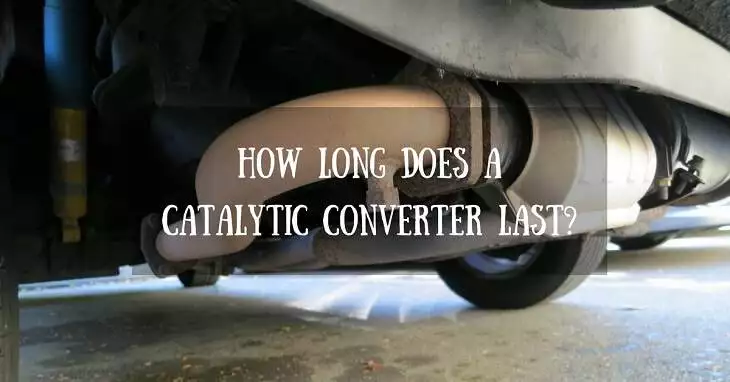
I think I’ve found the cause of my car problems. A friend of mine recently mentioned how my vehicle’s engine would misfire when he borrowed it for the weekend. However, he wasn’t able to find out the reason why. I’m assuming since there’s no mechanical trouble, I’ve got a bad catalytic converter.
does using high octane fuel with techron prolong catalytic converter life?